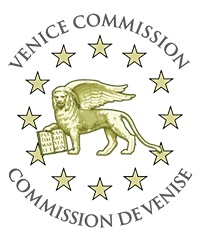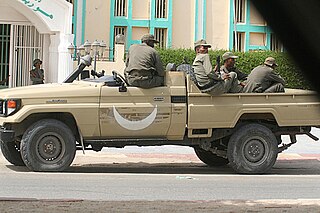
A quorum is the minimum number of members of a deliberative assembly necessary to conduct the business of that group. According to Robert's Rules of Order Newly Revised, the "requirement for a quorum is protection against totally unrepresentative action in the name of the body by an unduly small number of persons." In contrast, a plenum is a meeting of the full body. A body, or a meeting or vote of it, is quorate if a quorum is present.

E-democracy, also known as digital democracy or Internet democracy, is the use of information and communication technology (ICT) in political and governance processes. The term is believed to have been coined by digital activist Steven Clift. E-democracy incorporates 21st-century information and communications technology to promote democracy; such technologies include civic technology and government technology. It is a form of government in which all adult citizens are presumed to be eligible to participate equally in the proposal, development and creation of laws.

The United Civic Party is a liberal-conservative and liberal political party in Belarus. The party opposes the government of Alexander Lukashenko and has participated in the country's elections on a few occasions, but it did not have a single member in the Belarusian parliament until one member was elected during the 2016 elections. It claims that its lack of seats is due to the unfairness of the election process.

A student council is an administrative organization of students in different educational institutes ranging from elementary schools to universities and research organizations around the world. These councils exist in most public and private K-12 school systems in different countries. Many universities, both private and public, have a student council as an apex body of all their students' organisations. Student councils often serve to engage students in learning about democracy and leadership, as originally espoused by John Dewey in Democracy and Education (1917).

Elections in Cuba are held at municipal, provincial, and national levels. Cuba is a one-party state, with the Communist Party of Cuba being described as the "superior driving force of the society and the state" in the Constitution of Cuba, and all other political parties are illegal. Elections in Cuba are not considered democratic because the government does not allow free and fair voting.

Thomas David Simpson is a Democratic Unionist Party (DUP) politician in Northern Ireland, who was the Member of Parliament (MP) for Upper Bann from 2005 to 2019. On 6 November 2019 Simpson announced that he would not be standing for re-election in the 2019 general election.

The Venice Commission, officially European Commission for Democracy through Law, is an advisory body of the Council of Europe, composed of independent experts in the field of constitutional law. It was created in 1990 after the fall of the Berlin Wall, at a time of urgent need for constitutional assistance in Central and Eastern Europe.

A United Nations Parliamentary Assembly (UNPA) is a proposed addition to the United Nations System that would allow for greater participation and voice for members of parliament. The idea was raised at the founding of the League of Nations in the 1920s and again following the end of World War II in 1945, but remained dormant throughout the Cold War. The Campaign for a United Nations Parliamentary Assembly (CUNPA) was formed in 2007 by Democracy Without Borders to coordinate pro-UNPA efforts, which as of June 2017 has received the support of over 1,600 members of parliament from over 100 countries worldwide. The Commission on Global Security, Justice and Governance, chaired by former U.S. Secretary of State Madeleine Albright and former Nigerian Foreign Minister Ibrahim Gambari, has called for the creation of a United Nations Parliamentary Network "to raise greater awareness and participation by strengthening the voices of legislators in global institutions." The commission proposes that this Network "would be similar in initial composition to the Parliamentary Network on the World Bank and International Monetary Fund and the Parliamentary Conference on the World Trade Organization". In July 2018, the European Parliament adopted a recommendation to the European Council endorsing a proposal for the establishment of a United Nations Parliamentary Assembly.
The committees of the Australian Senate are committees of Senators, established by the Australian Senate, for purposes determined by that body. Senate committees are part of the operation of the Australian parliament, and have for some decades been involved in maintenance of government accountability to the Australian parliament, particularly through hearings to scrutinise the budget, and through public inquiries on policy questions.

The European Youth Forum is an international non-profit association and serves as a platform and advocacy group of the national youth councils and international non-governmental youth organisations in Europe. It strives for youth rights in international institutions such as the European Union, the Council of Europe, and the United Nations.
Preselection is the process by which a candidate is selected, usually by a political party, to contest an election for political office. It is also referred to as candidate selection. It is a fundamental function of political parties. The preselection process may involve the party's executive or leader selecting a candidate or by some contested process. In countries that adopt Westminster-style responsible government, preselection is also the first step on the path to a position in the executive. The selected candidate is commonly referred to as the party's endorsed candidate.

The 2008 Mauritanian coup d'état was a military coup that took place in Mauritania on August 6, 2008, when President Sidi Ould Cheikh Abdallahi was ousted from power by the Armed Forces of Mauritania, led by a group of high-ranking generals he had dismissed from office earlier that day.

In 2007 the United Nations General Assembly resolved to observe 15 September as the International Day of Democracy—with the purpose of promoting and upholding the principles of democracy—and invited all member states and organizations to commemorate the day in an appropriate manner that contributes to raising public awareness.
…while democracies share common features, there is no single model of democracy and that democracy does not belong to any country or region... …democracy is a universal value based on the freely-expressed will of people to determine their own political, economic, social and cultural systems, and their full participation in all aspects of life.
In governance, sortition is the selection of political officials as a random sample from a larger pool of candidates. The system intends to ensure that all competent and interested parties have an equal chance of holding public office. It also minimizes factionalism, since there would be no point making promises to win over key constituencies if one was to be chosen by lot, while elections, by contrast, foster it. In ancient Athenian democracy, sortition was the traditional and primary method for appointing political officials, and its use was regarded as a principal characteristic of democracy.

The Balawaristan National Front is a defunct political party which sought independence of Gilgit-Baltistan, claimed as Balawaristan, as well as claims in certain regions of the Indian-Administered Kashmir, Kargil and Ladakh, as part of its historical territory.

Created by the Assembly of European Regions (AER), the Youth Regional Network (YRN) is a platform of regional-level youth organisations, councils and parliaments from across wider Europe. The platform works as a forum where young people can influence regional and European policy while exchanging experiences and good practice. At the general Assembly in Vojvodina on 7 May 2017, YRN members elected their presidium, which is composed as follow:

General elections were held in Pakistan on 16 November 1988 to elect the members of the National Assembly and Senate.

Currently, Mercosur is composed of five full members, five associated countries and two observer countries:

The Council of Europe was founded on 5 May 1949 by ten western and northern European states, with Greece joining three months later, and Iceland, Turkey and West Germany joining the next year. It now has 46 member states, with Montenegro being the latest to join.















